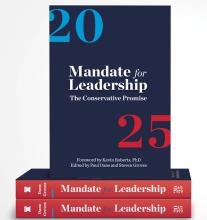The Constitution of the State of New Hampshire is the basic law of the state, and all statute laws must comply. This constitution went into effect June 2, 1784, replacing the state's original Constitution of 1776.
The constitution is divided into two parts: a Bill of Rights and a Form of Government. Subsections of each part are referred to as articles. Article 83 of the NH constitution specifically states “. . . that no money raised by taxation shall ever be granted or applied for the use of the schools of institutions of any religious sect or denomination.” This part of the article was amended in 1877 to keep public monies out of religious (private) schools.
A lawsuit was brought against the state in the early 1980s concerning the manner in which public schools were funded. The state agreed to provide 8% of the cost of education to a fund destined to help poor districts. The state never fully funded its promise and by 1989 Claremont's Stevens High School lost its accreditation as the district could not keep up with needed repairs.
In 1993, the New Hampshire Supreme Court understood Part II, Article 83 as a guarantee to students a right to a public education. Four years later, the NH school funding system was found to be unconstitutional and the governor and legislature were ordered to define the sections of a constitutionally adequate education, figure out the cost of such and pay for them with taxes that were equal across the state. Four governors and their legislatures refused to comply with the Court's orders leading the Supreme Court to again find the school funding system unconstitutional in 2006.
Here we are at the end of 2024, and NH has been all but taken over by extreme conservative groups who have infiltrated our legislature and local town governments. Time and again, common sense proposed legislation is defeated by the extremists.
Now the subject of funding public education is making the rounds in court again and two amicus briefs (friend of the court) were filed. One was filed by the Commission to Study School Funding asking the court to reaffirm the Claremont rulings and to provide special assistance to "less affluent cities and towns to improve student equity and reduce unfair property tax burdens.” The other was filed by the following 31 members of Liberty Alliance and Young Americans for Liberty (YAL) with the goal of putting an end to NH's constitutional mandate to educate every child.
Sen. Timothy Lang, District 2
Sen. Howard Pearl, District 17
Rep. Keith Ammon, Hillsborough County, District 42
Rep. Harry Bean, Belknap County, District 6
Rep. Jose Cambrils, Merrimack County, District 4
Rep. Glenn Cordelli, Carroll County, District 7
Rep. Jess Edwards, Rockingham County, District 31
Rep. Keith Erf, Hillsborough County, District 28
Rep. Juliet Harvey-Bolia, Belknap County, District 3
Rep. Gregory Hill, Merrimack County, District 2
Rep. William Infantine, Hillsborough County, District 16
Rep. Jim Kofalt, Hillsborough County, District 32
Rep. Rick Ladd, Grafton County, District 5
Rep. Wayne MacDonald, Rockingham County, District 16
Rep. Carol McGuire, Merrimack County, District 27
Rep. Dan McGuire, Merrimack County, District 14
Rep. Jason Osborne, Rockingham County, District 2
Rep. Sherman Packard, Rockingham County, District 10
Rep. Kristine Perez, Rockingham County, District 2
Rep. Katy Peternel, Carroll County, District 6
Rep. Andrew Renzullo, Hillsborough County, District 13
Rep. Alvin See, Merrimack County, District 6
Rep. John Sellers, Grafton County, District 18
Rep. Vanessa Sheehan, Hillsborough County, District 43
Rep. Joe Sweeney, Rockingham County, District 25
Rep. Chris True, Rockingham County, District 9
Rep. Len Turcotte, Strafford County, District 4
Rep. Michael Vose, Rockingham County, District 5
Rep. Scott Wallace, Rockingham County, District 8
Rep. Thomas Walsh Jr., Merrimack County, District 10
Rep. Kenneth Wey, Rockingham County, District 14
Do you have children or grandchildren in public schools? Are you an educator, perhaps a school board member? Do you want to see public education fairly-funded? Are you tired of paying property taxes knowing that a portion of them goes to private or home schools in direct disregard to Article 83 of the NH Constitution? If so, be sure to vote accordingly next month.










